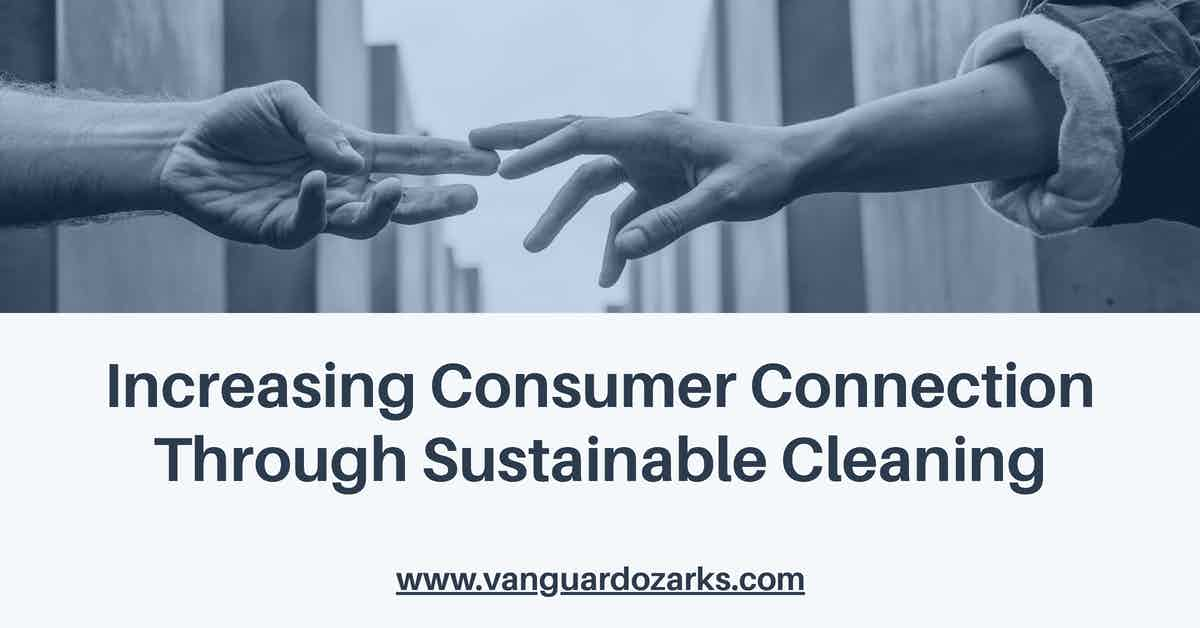In the post-pandemic world, consumer connections are the new currency by which schools and businesses will succeed or fail, making sustainability an increasingly vital course for organizations to adopt.

Connecting With Customers Through Sustainable Cleaning Practices
Emerging consumer demographics increasingly purchase products and services based on a values assessment of organizations and their practices.
In a recent consumer culture report conducted by 5W Public Relations, respondents were asked about their buying habits as they pertained to their social values.
- 83% of those 18-34 and 73% of those 35-54 stated it was important that companies they purchase from aligned with their values.
- Additionally, 62% of 18-34-year-olds and 50% of 35-54-year-olds said they purchased products that showed off their social beliefs.
- However, 65% of 18-34-year-olds and 59% of 35-54-year-olds stated they had boycotted a company and their products or services because of the organization's stance or actions regarding a values-based issue.
Connecting with these demographics provides organizations with access to more than $4T in annual spending power.
To tap into those markets, organizations will need to step up and become social leaders.
According to the results of a recent survey conducted by Sprout Social:
- 72% of respondents expected brands they purchase from to be positive contributors to society.
- 64% expected brands to connect with them and their other consumers, and;
- 64% expected organizations to use their power to help others.
One of the key ways brands and organizations can connect with consumers and stay connected is through sustainable business practices and responding to current events in what consumers view in a positive light.
Sustainable cleaning addresses both.
What Consumers Think About Sustainable Cleaning Practices
Two momentous challenges that have united consumers from multiple demographics behind the concept of sustainable cleaning practices are the environmental impacts humans have on the planet and the COVID-19 pandemic.
According to a recent article published by Chemical Week:
Consumer demand for safer, natural, and more sustainable cleaning products has elevated formulation trends from gradual improvements in performance and environmental footprint to transformative changes like new formats, increased renewable content, and multifunctionality.
Sustainability is now the clear driver of innovation, having evolved from a niche category to an imperative.
Conscious cleaning: Consumer demand for safer and greener products transforms home care
Further, according to Novozymes:
The importance of green products has never been clearer to consumers as they are exposed daily to their cleaning products while they are home during the pandemic.
They are educating themselves to better understand what is in their cleaning products.
A long-term trend of a greater willingness to embrace more sustainable cleaning routines has emerged from the pandemic, and it is not going away anytime soon.
A recent Euromonitor International report, "From Sustainability to Purpose: New Values Driving Purpose-Led Innovation", suggests just this.
Their insight says that "[p]ost lockdown, brand purpose will be key in connecting with consumers’ emotions and inspiring the new wave of sustainability orientated innovation, with cleaner technologies, products, services and new business models expected to shape a sustainable post COVID 19 world."
What is Sustainable Cleaning?
Sustainability in cleaning focuses on a reduction of toxic chemical and natural resource use and waste with an emphasis on human health and wellness.
Toxic chemicals, including many chemicals found in conventional, over-the-counter cleaning products, release volatile organic compounds, which studies have tied to a host of respiratory, reproductive, and other health issues, including cancer.
Sustainable cleaning:
- Uses eco-friendly cleaning products that, while still potentially toxic, off-gas far fewer VOCs than comparable conventional cleaning and disinfectant products.
- Reduces waste by shipping products in concentrated form housed in environmentally-friendly or recycled packaging.
- Eliminates water waste through the use of advanced cleaning technologies and chemical management systems.
Bottom-line business advantages to sustainable cleaning, outside of consumer demand, connection, and long-term retention include:
- Reduced operation costs due to a reduction in shipping and cleaning product storage expenses.
- Lower utility bills.
- A reduction in sick days, and;
- Improved occupant cognitive function, morale, health, and wellness.
References & Resources
- 5WPR 2020 Consumer Culture Report: Insight into the complexities of the modern consumer’s motivations, influences and purchasing habits.
- #BrandsGetReal: What consumers want from brands in a divided society
- Risk in cleaning: chemical and physical exposure
Takeaway
Clearly, sustainability is critical to organizations who wish to connect with and retain the loyalty of a consumer base commanding more than $4T in annual product and service spending.
A proven method for efficiently onboarding sustainable cleaning services is by outsourcing to an experienced service provider with a proven record of sustainability.
Contact us today and discover why Vanguard Cleaning Systems® is the Standard of Clean® for businesses throughout Northwest Arkansas, Missouri, and Oklahoma.
In Oklahoma, dial 918-960-4450
In Arkansas, dial 479-717-2410
In Missouri, dial 417-812-9777

